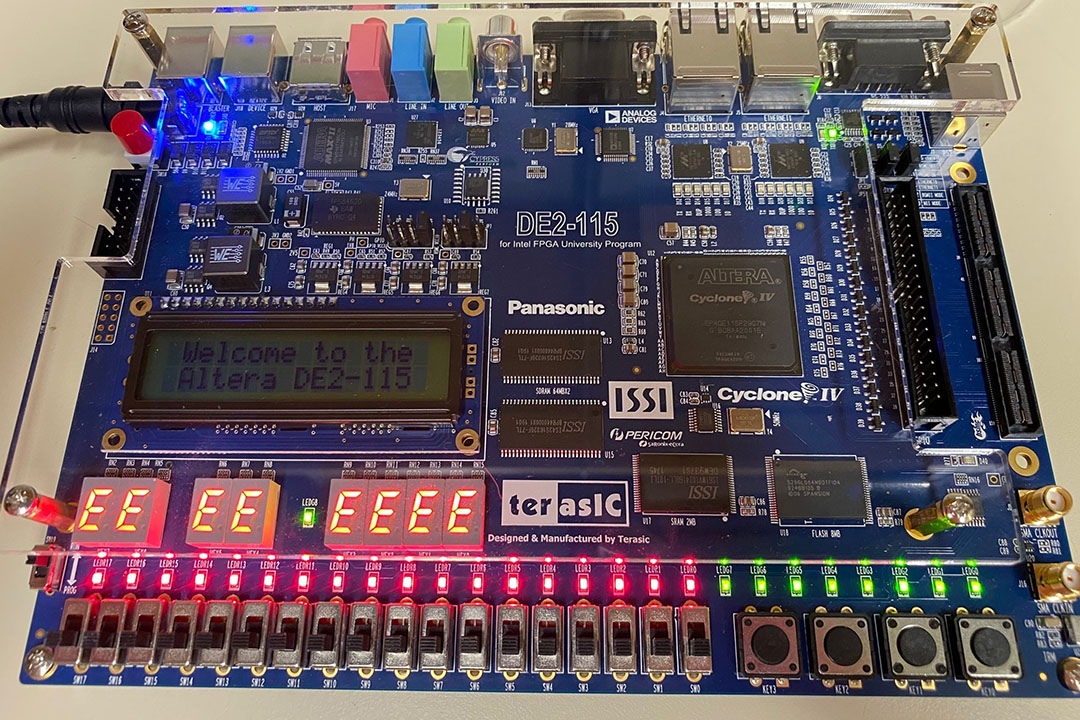
Engineering remote lab experience made possible thanks to USask donors
In the beginning of the fall 2020 term, the computer engineering department at the University of Saskatchewan (USask) faced a dilemma.
By Inalie PortadesDue to the remote delivery of classes, students in CME 341 (Logic Design Using FPGAs) class could not access laboratory equipment on campus essential to their labs and studies, such as circuit boards.
“We didn’t want to compromise the quality of these labs—it’s very important for students to have that hands-on connection with the hardware even in a remote learning environment,” said Dr. Brian Berscheid (PhD), professor in the College of Engineering who teaches CME 341.
Considering the increased financial challenges that some students have faced due to the pandemic, purchasing their own boards was not a viable option. The department of computer engineering decided to find a source of funding to provide at-home circuit boards for students.
USask alumni collectively donated $25,000 to help purchase DE2-115 circuit boards for all 64 students signed up in the CME 341 class. These circuit boards were delivered to students and replicate the quality and experience they would normally get in a lab on campus.
Alumni like Dr. Hugh Wood (PhD), also a retired USask engineering professor, said he knows the importance of hands-on learning and was pleased to help students navigate their labs in a remote environment.
“The department was quite concerned that students’ laboratory experience would suffer, so we decided to work with them and find a way to deliver the same quality of labs while staying at home,” said Wood.
Before the transition to remote learning, Berscheid noted that the DE2 boards were set up and maintained by the department’s lab support staff, who ensure everything is ready to go for students when they walk in to the lab.
To ensure that students are supported using the boards at home and learning to the fullest, the department provided detailed instructions online through Canvas, the online learning management system provided by the university. A strong sense of collaboration was demonstrated by the students in CME 341 as they learned together and provided helpful tips to each other while using the boards.
Thanks to donors’ generosity, students may reuse these circuit boards for other classes.
“Our boards are commonly used throughout a number of our classes and we have a sequence of classes that build upon one another,” Berscheid added.
If the class is online again this fall, the department plans to follow a similar approach by sending circuit boards to students at home.
“The students all spoke very positively about how these boards helped them make the connections between what they are learning in class and the real world,” said Berscheid.
In a survey sent out to CME 341 students to collect responses about their experiences with the boards, one student stated: “I honestly couldn’t imagine doing this year without the DE2-115 board. It provides utility and a great learning experience where we get to debug out code using the physical switches and hex displays.”
Other students also spoked highly about the DE2 boards: “I have used the board in three of my classes. Being able to work with the physical device has made my lab experience a lot better … I would like to thank all the donors for their generous contribution.”

